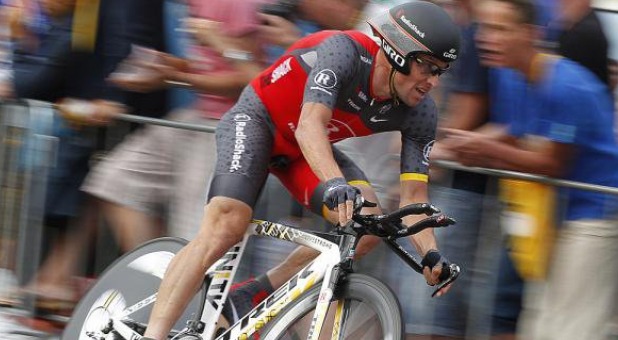Lessons From the Lance Armstrong Fiasco
Lance Armstrong has gone from being one of America’s most celebrated athletes to one of the most disgraced athletes of all time, from an inspiration to millions to a laughingstock to the world. What can we learn from this debacle in light of his recent confessions?
1) Even if “everyone is doing it,” that doesn’t make it right. When Oprah Winfrey asked Armstrong if he felt like he was cheating when he engaged in systematic doping to win seven consecutive Tour de France championships, he replied, “At the time, no. I kept hearing I’m a drug cheat, I’m a cheat, I’m a cheater. I went in and just looked up the definition of cheat and the definition of cheat is to gain an advantage on a rival or foe that they don’t have. I didn’t view it that way. I viewed it as a level playing field.”
Put another way, if everyone else in the sport is cheating, then I’m not cheating if I’m doing what they’re doing. In fact, it’s just fair play. The obvious lesson is that breaking the rules is breaking the rules, no matter how many people break them, and morality is not determined by how others behave.
Armstrong’s mentality, however, is typical of postmodern relativism, be it in terms of truth (“What is true for you may not be true for me”) or in terms of morality (“There are no moral absolutes”). And when it’s “the system” that we’re fighting, we can justify almost anything.
2) It’s always better to confess volitionally than to confess because you have no choice. There is a world of difference between being sorry that you were caught vs. being sorry that you did wrong. The latter signals a change in attitude that could lead to a change in behavior and even a change in character. The former doesn’t necessarily signal any real change, and unless the confession is really heartfelt and sincere, it only means that you’re embarrassed and ashamed that you got caught.
The book of Proverbs said it so well: “He who covers up his sins will not succeed; He who confesses and gives them up will find mercy” (Prov. 28:13).
Just think of where Lance Armstrong could be today if he had come clean years ago, before the evidence had mounted against him and before he had demonized so many of his former friends and colleagues. He could have been the first athlete of his prominence to come clean of his own volition, a shining example of integrity, a role model for the next generation. “Don’t do what I did just to win in your sport. It’s not worth it, and all my past accomplishments are now tainted. I hereby dedicate the rest of my life to being an example of integrity in sports and of courage in the battle against cancer.”
What a massive difference that would have made.
3) If you’re going to humble yourself, do it right. Some years ago, a ministerial colleague of mine asked me to help him draft a letter of apology to another minister with whom he had engaged in a public dispute. As I typed out his handwritten apology, I cringed, wondering out loud, “Aren’t you going too far? Aren’t you giving your critics more fuel for their fire?”
He said to me in reply, “I was taught a long time ago that if you’re going to humble yourself, do it right”–and that means no finger-pointing, no excuse-making, and no trying to soften the blow.
Others can evaluate to what extent Armstrong adequately followed this rule, but it’s certainly a good rule for the rest of us.
4) The public can forgive you, but it takes a long time to rebuild trust. Sports columnist Rick Reilly penned a very candid column about his reaction to Amstrong’s personal apology to him by way of Twitter. (“Riles, I’m sorry. All I can say for now but also the most heartfelt thing too. Two very important words. L.”)
Reilly wrote, “And my first thought was … ‘Two words? That’s it?’ Two words? For 14 years of defending a man? And in the end, being made to look like a chump?”
Reilly continued: “But here’s the thing. When he says he’s sorry now, how do we know he’s not still lying? How do we know it’s not just another great performance by the all-time leader in them?
“And I guess I should let it go, but I keep thinking how hard he used me. Made me look like a sap. Made me carry his dirty water and I didn’t even know it.”
Of course, Reilly was much closer to this scandal than the rest of us, but the sentiments he expressed reflect the sentiments of many: “You lied to me, and I believed you. You were so sincere–even passionate–in your denials, and you convinced me. And I wanted to believe in you. Now you have been caught and have lost everything, and you have no choice. Why should I believe you are sincere now?”
So, we can (and should) forgive Armstrong, but it will take him a very long time–if ever–to rebuild trust and to rehabilitate his reputation. He will literally have to become a different man.
And maybe he will become a different man, the first of a new brand of heroes for a generation that so desperately needs them. It’s far-fetched but not impossible.
Michael Brown is the author of The Real Kosher Jesus and the host of the nationally syndicated talk radio show The Line of Fire on the Salem Radio Network. He is also president of FIRE School of Ministry and director of the Coalition of Conscience.
















































